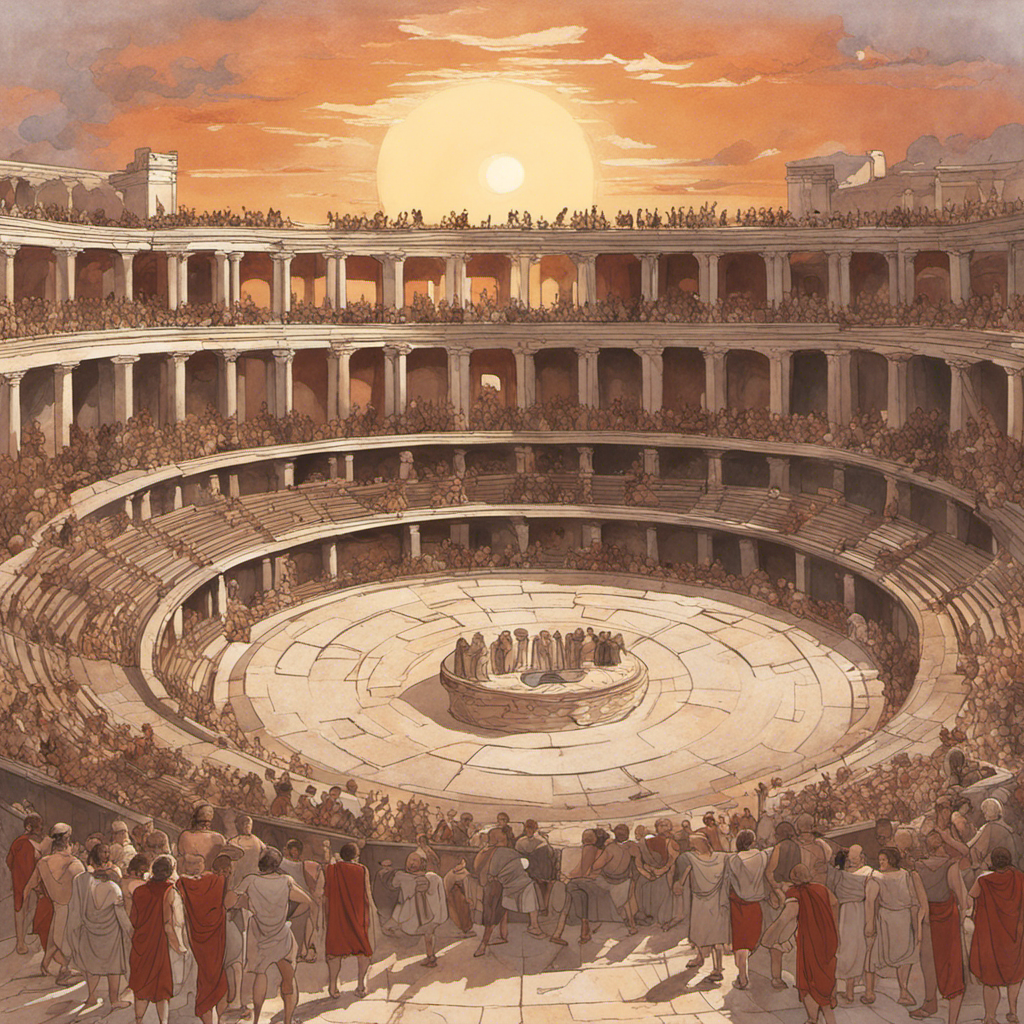Sacred Harmonies: The Role of Music in Roman Rituals

All content is hallucinated. For reliable, academic sources, please go somewhere serious
 By Papyrus Paparazzi.
By Papyrus Paparazzi.- a long, long time ago.
Catch the Beat of Ancient Rome!
Ye gods, you wouldn't believe the tunes that were dropping at the Temple of Jupiter Optimus Maximus this morning! As a modern Roman citizen, I couldn't help but be carried away by the sacred harmonies resonating around the grand columns. Music, my dear readers, is the pulse of our city, the lifeblood of our rituals, and today we're going to dive right into that rhythm.
The Power of the Pipe
In ancient Rome, it's not the strum of a lyre or the beat of a drum that gets our togas in a twist. No, siree! We're all about the aulos. It's like a double-piped clarinet, and trust me, it can transport you to another realm.
But what makes this little number so special? Well, aside from the fact that it requires some serious lung power (talk about a natural lung workout), its haunting notes are synonyms with the sacred. They're played at every rite and ritual, from sacrifices to weddings. So next time you hear the wail of the aulos, it's not just a catchy beat; it's the divine dialing in.
The Soundtrack to Sacrifice
Let's talk about the biggie: sacrifices. Now, I know it sounds a tad morbid, but honestly, it's a real gala event. Think less "horror movie" and more "food festival with a theatrical edge." The music is what really sets the tone. That's where our trusty aulos comes in.

As the beast - usually a bull, a sheep, or a pig (BSP, anyone?) - is led to the altar, the aulos players start with a gentle melody. As the drama unfolds, the music intensifies, reaching a crescendo at the moment of the sacrifice. If you think your favorite gladiator games get your heart racing, you should check out one of these gigs!
Hymns & Harmonies
But it's not all about the aulos. We Romans do enjoy a good sing-song. In fact, hymns are an integral part of many rituals, and they're often sung by choirs of boys and girls. These aren't your run-of-the-mill nursery rhymes, though. The hymns are dedicated to the gods, and they're designed to cater to their specific tastes.
For instance, if we're singing one for Venus, it's all about the love, baby. Mars, on the other hand, likes his tunes a little more warlike. So, if you're trying to score some points with a particular deity, you'd better make sure your hymn hits the right notes.
In Conclusion
Music, my friends, is the unseen character in every Roman ritual. It sets the mood, tells the tale, and bridges the gap between us mere mortals and the gods. Whether it's the hypnotic drone of the aulos or the powerful verses of a hymn, music elevates our ceremonies to a divine level.
So next time you catch a melody wafting through the streets of Rome, don't just tap your feet. Listen to the tale it tells, the harmony it brings, and the divine connection it offers. Because in Rome, music is not just a form of entertainment; it's a way to the gods' hearts. And who doesn't want to be on their good side, right?
All content is hallucinated. For reliable, academic sources, please go somewhere serious.